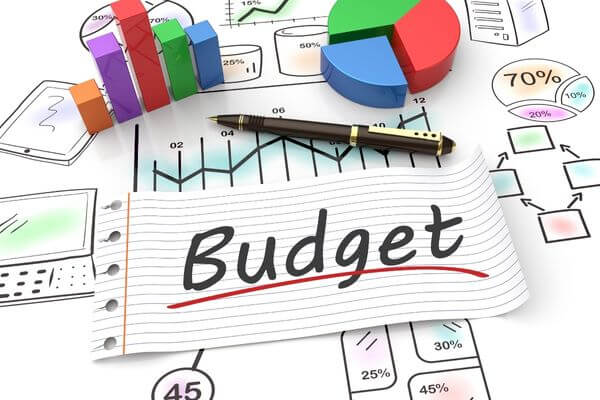Is $5000 Enough to Move Out? The Ultimate Guide to Moving Out in 2024
Inside: Are you thinking about moving out? This guide will help you figure out how much money you need to save and where to find affordable housing. Will $5k be enough to move out?
Moving out for the first time is a huge milestone. It’s a chance to start fresh, create your own space, and live on your own terms.
But it can also be a daunting prospect, especially when you’re trying to figure out how much it will cost.
You want to know if $5,000 is enough to move out?
But there are a lot of factors to consider before making the decision to move out, and we’ve laid them all out for you in this ultimate guide.
So whether you’re just starting to think about moving out, or you’re ready to start packing your boxes, read on for everything you need to know about making the big move.

How much money do I need to move out?
Experts recommend having at least $6,000 to $12,000 saved up before moving out.
However, it’s possible to move out with as little as $5,000 if you focus on knowing how to live cheap and have a stable source of income.
However, if you don’t have a job before moving out, the need for a huge savings account is huge.
How much money should I have if I want to move out?

The minimum amount of money required to move out will depend on where you plan to live and your living expenses.
Shortly you will learn factors to include initial moving costs, rental deposit, and ongoing costs like rent, utilities, and food.
If you are looking to move out in an HCOL area, then you will need more than an LCOL city. At this point in your life, it is important to understand HCOL vs LCOL and how it affects your finances.
Okay, here you go… We answer the specific question of how much should I save to move out.
This post may contain affiliate links, which helps us to continue providing relevant content and we receive a small commission at no cost to you. As an Amazon Associate, I earn from qualifying purchases. Please read the full disclosure here.
What are the expenses you should consider when moving out?

Moving out on your own can be a daunting and expensive task.
There are many expenses to consider when budgeting for your new place especially when you are learning how to move out at 18.
This guide will help you estimate the cost of moving out and provide tips on how to save money.
1. Rent/Utilities
The cost of rent varies depending on the location and size of the apartment or home, with the median rental cost in the US being around $1700 per month.
Along with rent, utilities like electricity, gas, water, and internet can cost around $400 per month.
To save money on rent and utilities, consider finding roommates to split costs or negotiating with landlords for a lower rent.
Rent is your biggest expense when figuring out the ideal household budget percentages.
2. Rent Deposit
When renting an apartment, you will typically need to provide a rent deposit. This deposit is a sum of money paid upfront to the landlord to cover any damages or unpaid rent at the end of the lease.
The cost of a rent deposit can vary depending on the location and the landlord’s requirements, but it can range from $1,000 to $5,000 or one to three months of rent.
To save money on a rent deposit, consider looking for apartments with lower deposit requirements or negotiating with your landlord for a lower amount. A clean rental history will help you with this.
3. Moving Expenses

Moving out can be an expensive process, but with some planning and budgeting, you can keep costs under control.
When considering moving expenses, be sure to factor in the costs of moving truck, packing supplies, such as boxes and tape, as well as the cost of hiring movers
To save money on these expenses, try finding free packing materials on Buy Nothing groups or ask friends and family to help you move. You can also minimize your possessions and have less to move.
4. Renter’s Insurance
When moving out and renting a home or apartment, it’s important to consider getting a renter’s insurance policy to protect you from unforeseen events.
Home insurance, also known as renter’s insurance, is a special type of insurance policy that protects your property against losses or damage stemming from covered perils, including fires, storms, or theft. It can give you peace of mind and help you repair or replace your possessions in the event of unforeseen situations.
Insurance premiums are based on various factors, including where you live, how much you choose to insure, and your deductible. Your credit score and history may also affect your insurance rates.
This is one of the financial advice for young adults.
5. Furniture and Appliances
When moving into a new home, it’s important to consider all the necessary expenses for furnishing the space. This includes appliances like a refrigerator, stove, oven, and microwave, as well as daily living items such as a mattress, table, and couches.
I remember when I moved into my first apartment by myself and there wasn’t a washer or dryer in the apartment. Just hookups. I had one of two choices: 1) rent from the management company for $35 a month or 2) buy new appliances with 0% interest for $35 a month. I chose option #2 and it saved me money in the long term.
To save money, consider buying used furniture from thrift stores or online marketplaces like Facebook Marketplace. You can also find plenty of free furniture if you are not picky.
By being thrifty and smart with your purchases, you can furnish your new home without breaking the bank.
Here is a first apartment checklist to help you out!
6. Housewares

When moving out on a budget, it’s important to consider the essential housewares you’ll need to make your new place feel like home. Here’s a list of must-haves and their estimated costs:
- Mattress: $300-$500 (budget-friendly options available at Ikea, Amazon, and Walmart)
- Bed sheets: $30-$50 (check out Target or Costco for affordable options)
- Household cleaning products: $20-$30 (get these at any grocery store or discount store)
- Vacuum cleaner: $50-$100
- Laundry basket: $10-$35
- Garbage can: $20-$50
- Towels: $20-$30 (get these at Target or Amazon)
- Shower curtain: $10-$20 (available at Target or Walmart)
- Bathmat: $10-$20 (check out Ikea or Walmart for budget-friendly options)
- Plunger: $5-$ 10 (get this at any grocery or discount store)
- Plates, silverware, set of knives, cups, glasses: $50-$100 (check out Ikea or Walmart for budget-friendly options)
- Pots and pans: $50-$100 (budget-friendly options available at Ikea, Amazon, and Walmart)
- Fire extinguisher: $20-$30 (available at any home improvement store)
- Smoke detectors: $10-$20 (check out Home Depot or Lowe’s)
- Carbon monoxide detectors: $20-$30 (available at any home improvement store)
- First-aid kit: $10-$20 (get this at any drugstore or discount store)
- Instant Pot: This is my favorite with the air fryer
- Coffee maker or other small appliances: $20-$50 (check out Amazon or Walmart for budget-friendly options)
- Closet systems or organizer: $50-$100 (budget-friendly options available at Ikea and Walmart)
- Blinds and window treatments: $50-$100 (check out Amazon or Walmart for budget-friendly options)
By prioritizing these essential housewares, you can make your new place feel like home without breaking the bank.
Don’t forget to check out thrift stores and Facebook Marketplace for gently used furniture and household items. With a little creativity and resourcefulness, you can furnish your new home on a budget.
7. Internet and Phone Bills
The average cost of internet and phone plans varies depending on the provider and the plan you choose. However, you can expect to pay around $50 to $100 per month for internet and $40 to $80 per month for a mobile phone plan. In addition, there may be additional fees, such as equipment costs or activation fees, which can add up quickly.
To minimize these expenses, consider bundling services with one provider. Many companies offer discounts for bundling internet, phone, and cable services.
8. Credit Card Payments
If you thinking about moving out and are currently swaddled in debt, then you probably don’t have enough money to move out. If you have high-interest credit card debt, prioritize paying it off before moving out.
Automating savings on essential bills using Truebill can also help you manage your credit card payments while covering the costs of moving out.
Additionally, ensure that you have an emergency fund and enough money to stay a year to handle unexpected expenses.
Things may get harder if you have to pay for college without help from parents.
How to calculate your moving out budget

Moving out on your own requires careful planning and budgeting.
- To calculate your moving-out budget, start by determining your monthly expenses once you move out. Make sure to include the factors discussed above.
- Then, decide on your target move out date.
- Now, figure out how many months you have to save.
For example, if your target move out date is in 6 months and you need to save $5,000 to cover your expenses, you’ll need to save about $833 per month.
Additionally, create an emergency fund to cover unexpected expenses such as medical bills or car repairs. Aim to save at least 3-6 months’ worth of expenses in your emergency fund.
By creating a detailed monthly budget and sticking to it, you can ensure that you can afford to live on your own and achieve your goal of moving out.
Tips and tricks on how to move out

So, you’re finally ready to move out and start your life as an independent adult.
But before you can start your new life, there are a few things you need to take care of first – like, you know, finding a place to live and figuring out how to pay for it. This is much like budgeting on a low income.
Learn the lessons from those who did not move out with enough cash – like me.
Tip #1: Create a Budget and Stay Within Limits
Moving out with only $5000 can be challenging, but creating a budget and sticking to it can make the process much easier.
To start, subtract your monthly bills from your monthly income to determine your basic budget.
- For instance, if you make $2500 per month and pay $1500 for rent and bills, you have $1000 left for living expenses.
- Allocate $400 for groceries and other necessities, $200 for transportation, and $100 for utilities.
- This leaves you with $300 for entertainment and other non-essential expenses.
To stay within your budget, consider using a budget binder to track your income and expenses.
Be mindful of living within your means and avoid overspending by resisting the temptation to spend your first paycheck on new household items or entertainment. Instead, opt for more affordable options such as walking around your new neighborhood or having a picnic in the park.
Tip #2: Reduce Expenses Where Possible
One of the hottest topics is becoming frugal green. To save money and the environment at the same time.
When it comes to furniture, try buying used or refurbished items or borrowing from friends and family. Additionally, cutting back on unnecessary expenses such as dining out and entertainment can free up more money.
By being resourceful and creative, it is possible to move out on a budget without sacrificing quality or comfort.
Remember to allocate 50% of your monthly pay towards necessary expenses, 30% towards things you want, and 20% for debt repayment and long-term savings.
Tip #3: Look for Low-Cost Rentals

Finding low-cost rentals can be a challenge, but there are several options available to those who are willing to be flexible and creative.
- Renting a basement suite or studio apartment can be a more affordable option.
- Consider couch surfing, subletting, or home-sharing arrangements.
- Home-sharing can be particularly attractive as it allows you to pair up with an elderly homeowner who needs a little extra help in exchange for low rent.
- Find a tiny home rental.
- If you don’t mind sharing the space, you can also consider getting a roommate or looking into pod shares. Pod shares are co-living spaces where individuals rent a bed in a shared room, with access to other community spaces like a bathroom and kitchen.
- Become a housesitter and be paid to move out. Learn more with Trusted Housesitters.
With a little bit of research and creativity, it is possible to find low-cost rentals that fit your budget and lifestyle. Remember to determine exactly how much you can spend on rent and be open to alternative housing solutions to help keep your costs at a minimum.
Tip #4: Look Into Getting Renters Insurance
When renting you are more than likely going to live closer to others, which means more things can go wrong. Don’t skip out on renter’s insurance, as it can provide the peace of mind and protection you need as a first-time renter.
Without renter’s insurance, unexpected disasters such as fires, storms, or theft can leave you with thousands of dollars in damages that you would have to pay out of pocket.
Renter’s insurance typically costs around $20 per month and can save you a lot of money in the long run. Some affordable options for renter’s insurance include Lemonade, State Farm, and Allstate.
It’s important to shop around and compare policies to find the best one for your needs and budget.
Tip #5: Plan for Emergencies and Unexpected Expenses

It is crucial to plan for emergencies and unexpected expenses.
Start by setting aside a minimum of $1000 for an emergency fund.
Ideally, you should aim to save at least three to six months of living expenses in a rainy day fund. Remember, having a contingency plan and emergency fund can provide peace of mind and protect you from financial hardship.
Tip #6: Start Saving for a Security Deposit
Remember to prioritize saving for a security deposit by setting a specific savings goal and putting aside a portion of your income each month before you move out!
With dedication and discipline, you can reach your goal and move out with confidence.
More than likely, if you are a good tenant, you should get your full security deposit back after your lease is over.
Tip #7: Start a Side Hustle

Starting a side hustle can be a great way to earn extra money while still maintaining your full-time job. You can earn extra income through various side hustles depending on your skills and interests.
The most common side hustles are online jobs, such as transcription, virtual assistance, proofreading, blogging, freelance writing, data entry, graphic design, and web design. These jobs are flexible and eliminate the need for driving anywhere, requiring only a laptop or computer and a good internet connection.
In fact, learning how to make money online for beginners is a trending topic.
As you start your side hustle, put in as much time as you have available to maximize your earnings. Remember that a side hustle is unlikely to replace the need for a real job, but it can provide a great way to earn extra money and pursue your passions.
Tip #8: Plan Ahead and Create a Timeline
When planning to move out on a budget, it’s important to create a realistic timeline.
Start by mapping out all the expenses you’ll need to cover, such as rent, utilities, food, and transportation. Along with how much money you have already saved for unknown expenses.
Stay organized by keeping a checklist of everything you need to do and when it needs to be done. Don’t rush the process – take your time and make sure you have everything in order before making the big move.
Remember the millionaire quote, failing to plan is planning to fail, so take the time to plan ahead and create a realistic timeline.
Is 10000 a good amount to move out with?

According to various sources, $10,000 is generally considered enough to cover moving out expenses and leave room for emergencies.
However, the actual cost of moving out can vary depending on location, rent prices, and cost of living.
Learn how to save 10000 in a year!
FAQ
So, is 5000 enough to move out?

It really depends on your situation.
- If you’re moving to a cheaper area and don’t have many expenses, you might be able to make it work.
- However, if you’re moving to a more expensive city or have a lot of bills, you might need to save up more money.
When determining how much money is needed to move out, there are several factors to consider, which we covered above. These include where you plan to live, your living expenses, initial moving costs, ongoing costs, and emergency funds.
It’s essential to have a budget and do the math to determine the minimum amount required for a smooth transition to independent living on a tight budget.
Ultimately, it’s important to do your research and figure out what’s best for you.
Just remember, you don’t want to be stuck on a shoestring budget if you are not adequately prepared to move out.
Did the post resonate with you?
More importantly, did I answer the questions you have about this topic? Let me know in the comments if I can help in some other way!
Your comments are not just welcomed; they’re an integral part of our community. Let’s continue the conversation and explore how these ideas align with your journey towards Money Bliss.




